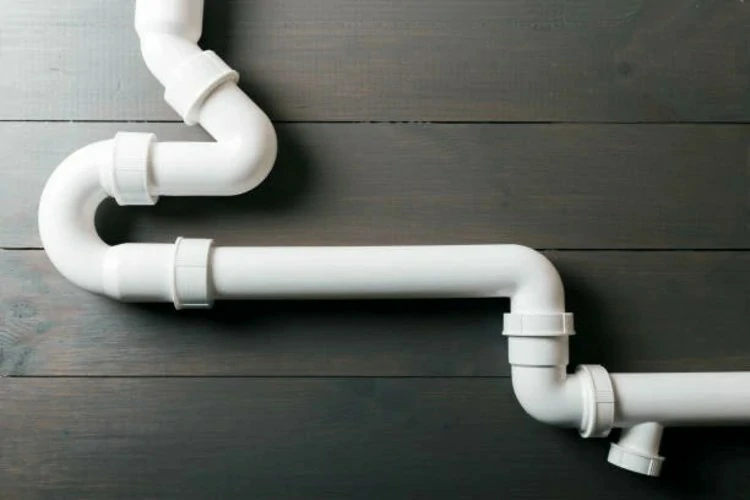Understanding the Different Ways to Connect PVC Pipes
PVC (Polyvinyl Chloride) plumbing systems rely on various connection methods to ensure secure and leak-free joints. From adhesive bonding to welding and mechanical joints, each connection method offers unique advantages and considerations. This section delves into the different PVC pipe connection techniques and their applications in plumbing projects.
Adhesive Bonding
Introduction to Adhesive Bonding
Adhesive bonding, also known as solvent cementing, is one of the most common methods used to join PVC pipes. This process involves applying a solvent cement to the pipe’s mating surfaces, which softens the PVC material and creates a strong chemical bond when the solvent evaporates.
Steps for Adhesive Bonding
- Surface Preparation: Clean the mating surfaces of the PVC pipes and fittings to remove any dirt, grease, or debris that may interfere with the bonding process.
- Application of Solvent Cement: Apply a generous amount of solvent cement to both the pipe and fitting using a brush or applicator. Ensure that the cement covers the entire mating surface evenly.
- Assembly: Quickly join the pipes and fittings together while the cement is still wet, applying slight pressure to ensure a tight seal.
- Curing: Allow the joint to cure for the recommended time specified by the solvent cement manufacturer before pressurizing the system.
Advantages of Adhesive Bonding
- Strong and Durable Joints: Adhesive bonding creates a permanent and watertight seal between PVC pipes and fittings, ensuring long-lasting performance.
- Simple and Cost-Effective: Adhesive bonding requires minimal equipment and expertise, making it an affordable option for plumbing installations.
- Versatility: Adhesive bonding can be used with various PVC pipe sizes and configurations, providing flexibility in design and installation.
Welding
Introduction to Welding
Welding, also known as heat fusion, is another method commonly used to join PVC pipes. This process involves heating the mating surfaces of the pipes and fittings to the point of melting, then pressing them together to form a seamless bond as the material cools.
Steps for Welding
- Surface Preparation: Clean and deburr the mating surfaces of the PVC pipes and fittings to ensure proper alignment and fusion.
- Heating: Heat the mating surfaces using a specialized welding tool, such as a hot air gun or welding machine, until the PVC material reaches its melting point.
- Joining: Once the surfaces are heated evenly, press the pipes and fittings together firmly to allow the melted material to fuse and form a strong bond.
- Cooling: Allow the joint to cool and solidify before handling or pressurizing the system to ensure proper fusion.
Advantages of Welding
- Seamless and Leak-Proof Joints: Welded joints provide a seamless connection between PVC pipes and fittings, minimizing the risk of leaks and failures.
- High Strength and Integrity: Welding creates a molecular bond between the PVC material, resulting in joints that are as strong as the pipes themselves.
- Suitable for High-Pressure Applications: Welded joints are capable of withstanding high pressures, making them ideal for pressurized plumbing systems.
Mechanical Joints
Introduction to Mechanical Joints
Mechanical joints, such as couplings, unions, and flanges, offer a quick and versatile method of connecting PVC pipes without the need for adhesives or welding. These joints rely on mechanical fasteners or compression fittings to create a secure and reliable connection.
Steps for Mechanical Joints
- Preparation: Ensure that the PVC pipes and fittings are clean and free of debris before assembly.
- Assembly: Slide the mechanical joint, such as a coupling or union, over the ends of the pipes and tighten the fasteners or compression fittings securely.
- Testing: Conduct a pressure test to verify the integrity of the joint and ensure that it can withstand the intended operating conditions without leaks or failures.
Advantages of Mechanical Joints
- Ease of Installation: Mechanical joints are quick and easy to install, requiring minimal tools or specialized equipment.
- Reusable and Adjustable: Unlike adhesive bonding or welding, mechanical joints can be disassembled and reconfigured as needed without damaging the pipes or fittings.
- Compatibility: Mechanical joints are compatible with various PVC pipe sizes and types, offering flexibility in design and installation.
Conclusion
PVC plumbing systems offer a range of connection methods to suit different project requirements and preferences. Understanding the characteristics and applications of adhesive bonding, welding, and mechanical joints is crucial for selecting the most suitable connection method in PVC plumbing installations. Factors such as application, budget, and performance expectations should be considered to ensure secure and reliable joints.
IFAN is a Chinese manufacturer of plastic pipes, fittings and valves with 30 years of experience. If you are interested in IFAN copper fittings, copper valves, plastic pipes and fittings, please contact us. IFAN offers you a variety of standard pipes to meet your specific needs. Click below to learn more about IFAN’s wide range of affordable and cost-effective valve products and piping system related products.
We will reply your email or fax within 24 hours.
You can call us at any time if there is any question on our production.
For more information,pls visit our webside https://ifanpro.com/
Pls Mailto: [email protected]
Whatsapp: + 86 19857948982














Recent Comments